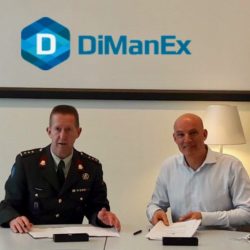Daimler to digitalize aftersales for Mercedes

The approach to the Mercedes aftersales service is set to change dramatically. Just as within other disruptive companies, a digital platform will play a big role, according to Stefan Putzlocher, Head of Global Warehouse and Facility Planning and Global Service & Parts at Daimler. He discussed the plans during his keynote speech at Translog Connect 2017 in Budapest which attracted around 400 delegates, making it the biggest supply chain conference in Central/Eastern Europe.
By Marieke Lenstra
In his current role, Stefan Putzlocher is responsible for innovation and for all warehouses involved in Mercedes’ aftermarket. Besides that, he is in charge of the new Mercedes plant which is being built in Kecskemet, 80 kilometres south of Budapest. Putzlocher kicked off his presentation with a global overview. The precise figures vary depending on which online source you use, but there’s no doubt that Silicon Valley is the world’s number one region for startups.
“There are 20,000 startups in Silicon Valley, but only 200 of them will survive,” stated Putzlocher. He named Israel as second, and Berlin third. But the figures merely served to illustrate his main point: “What are these startups doing? They are disrupting. They’re destroying other business models.”
As an example he mentioned the music industry, which started out with vinyl records. “The first ‘disruption’ was the CD. Old machines were replaced by new machines, but the distribution channel remained the same. But then Spotify arrived and destroyed the entire business,” said Putzlocher. “If you look at the disruptive companies today, they all have something in common: Uber doesn’t have its own taxis, Alibaba doesn’t hold stock, Airbnb doesn’t own hotels and Netflix doesn’t have its own movie theatres. What they all do have is a platform.”
This trend towards platforms also applies to the Mercedes aftersales service. He used another example to explain how a digital platform is set to change Mercedes’ maintenance activities: “My wife’s car had broken down. It was a simple matter of replacing a part. The dealer initially assured me that the car could be repaired the next day. However, I was aware that it was a bank holiday in Germany, so I already knew that wasn’t going to happen. I returned home with a temporary solution, had to wait, and was given incorrect information – and all that for a part that I didn’t even need the dealer for because I could have replaced it myself.”
Mercedes Me
Daimler is now working hard to create the ‘Mercedes of Service’ through digitalization. The ‘Mercedes Me’ app creates a connection enabling all kinds of data to be extracted from the vehicle for remote analysis. For example, the app not only shows how much fuel is in the tank, where the car is parked and how many miles until the next service appointment is due, but also provides information about the coolant level and tyre pressure. Furthermore, the app makes it possible to schedule an appointment with the dealer online and to give permission for the vehicle data to be extracted immediately.
Putzlocher: “In the future you’ll just have to take a photo of the faulty part. And the software is so intelligent that it can tell you what it is and immediately check online whether the part is in stock. Customers can then choose whether to take it to a dealer for repair or to get it delivered to them at home if they can replace it themselves.” There is no question that the spare parts business will change dramatically. One of the issues now arising is why a part should have to be shipped so far. More and more parts will become 3D printable in the future. “There will always be some parts, such as airbags, that we can’t deliver directly to consumers or to the local garage because they require specific knowledge. And all our transmission systems are changing, but the complete range of products will remain in service for the next 15 years, so the number of spare parts will grow significantly.”










